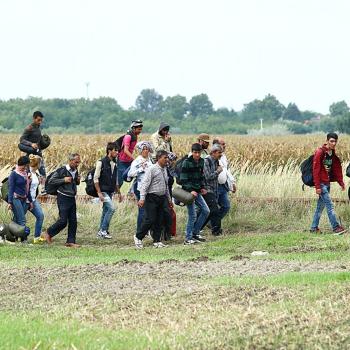I have worshiped in many different kinds of churches. Here I’ll focus only on Protestant ones.
I’ve noticed a puzzling pattern. Conservative Protestant churches (especially evangelical ones) tend to worship creatively, experimentally, enthusiastically, using contemporary styles of music. The sermons are often illustrated or partly acted out. A lot of technology is used depending on the church’s resources. Often there are drums and guitars and even saxaphones (!) accompanying the music. Seldom is an organ used. There seems to be an emphasis on feeling and emotion–stopping short of fanaticism in most cases.
At the same time, these churches that worship in such contemporary ways often have very conservative, traditional doctrines and practices: no women deacons or elders, only men taking the offerings, proud proclamation of the inerrancy of the Bible, young earth creationism, etc., etc. At least they think this is all traditional and any hint that they should update their beliefs and practices in these areas is met with icy rejection.
More moderate to liberal Protestant churches, on the other hand, seem more than willing to relativize and contemporize doctrine and practice–except worship. Their worship seems most often to be planned traditionalism–by whatever standard of tradition the particular church believes in. Moderate to liberal Protestant churches, even those in very low church traditions, tend to use liturgy, hymns (old and new), eschew “praise and worship” chorus singing, use pipe organs, turn to readings from ancient sources, etc., etc.
These churches see nothing wrong with updating everything except worship. Oh, they many engage in some degree of “liturgical renewal,” but that often means turning the clock back to ancient sources and patterns of worship. Worship in these churches tends to become more and more formal as their doctrinal revisions (or rejections) become more and more accommodated to contemporary culture.
Why does this pattern seem to be so prevalent and pronounced?















